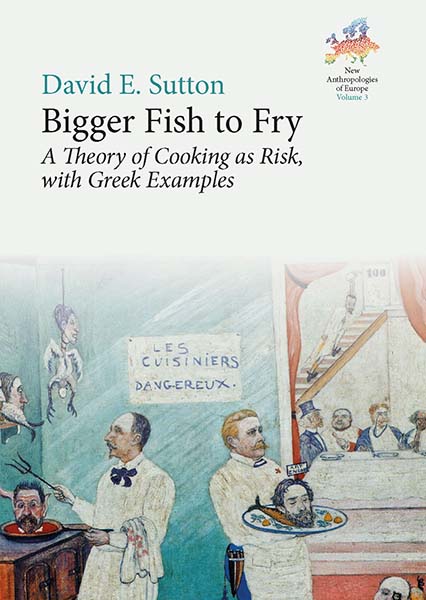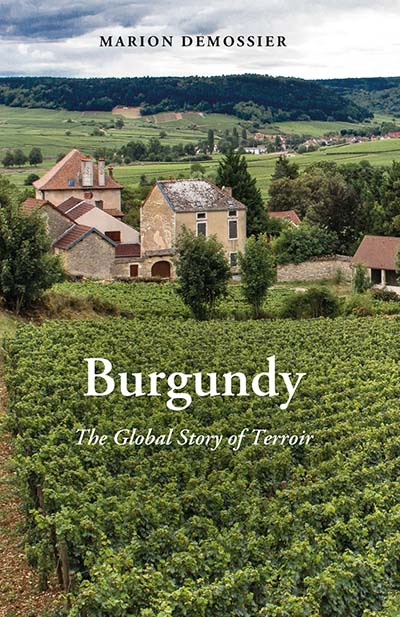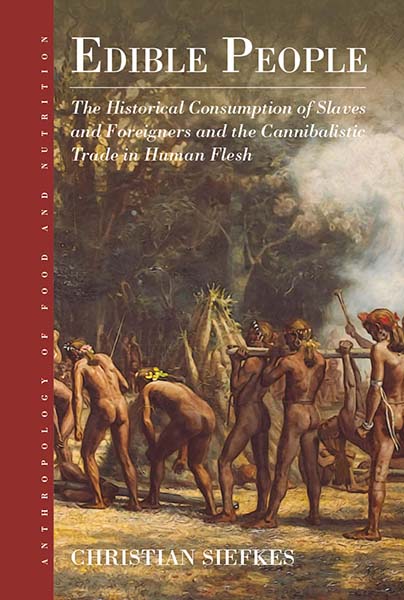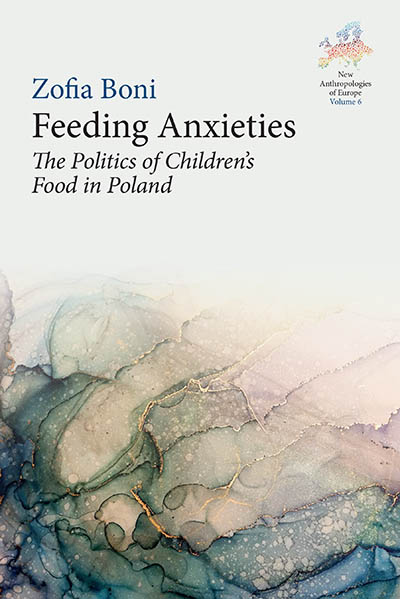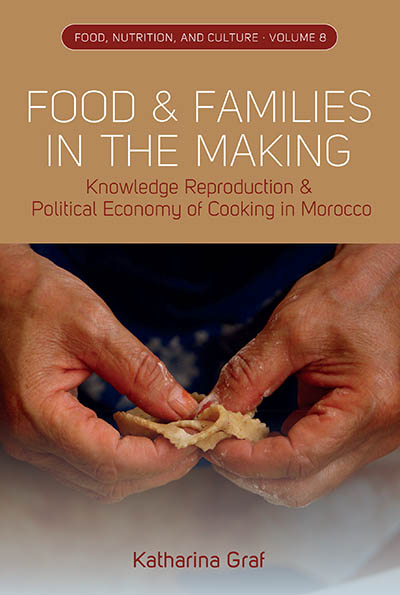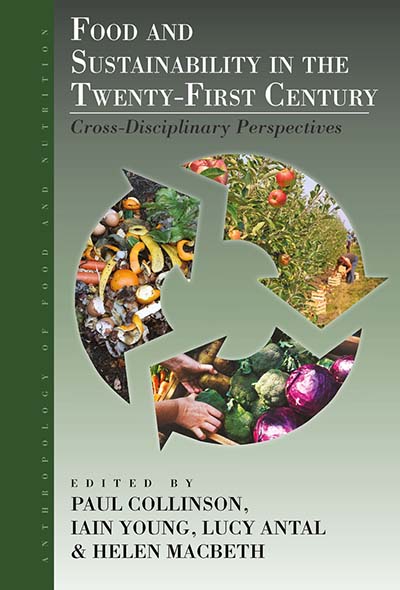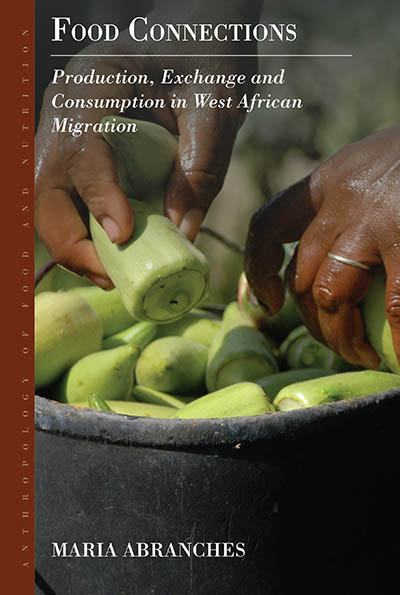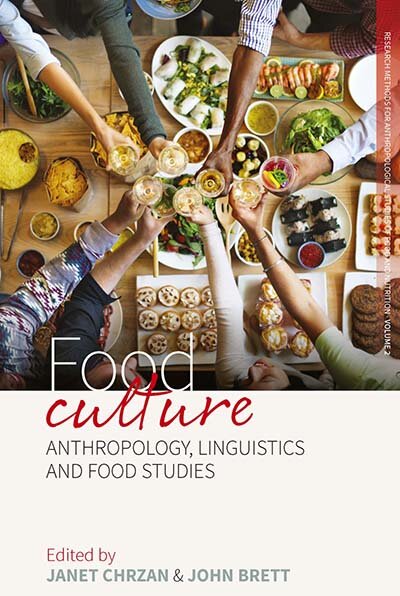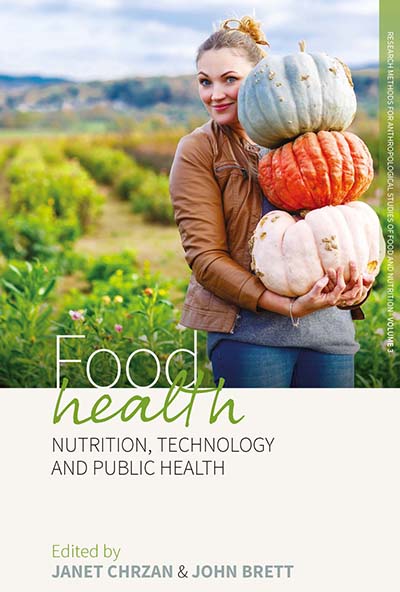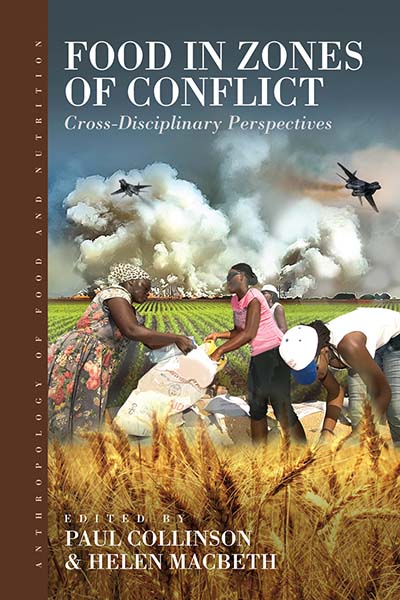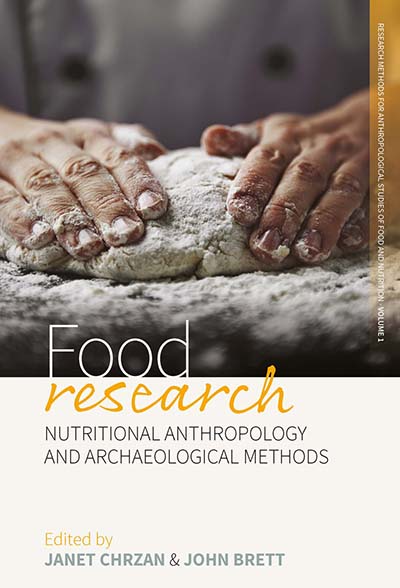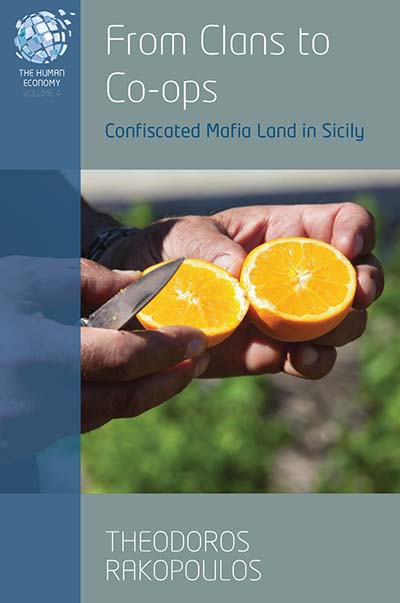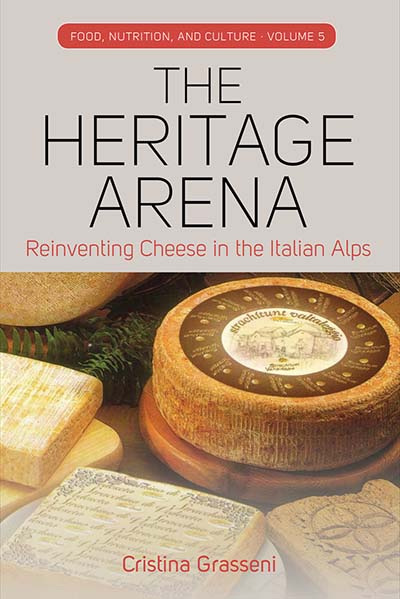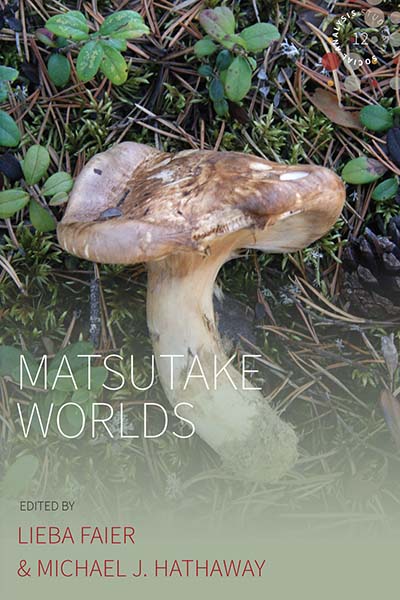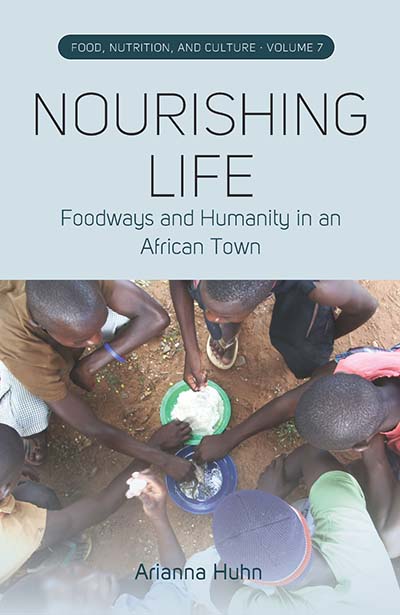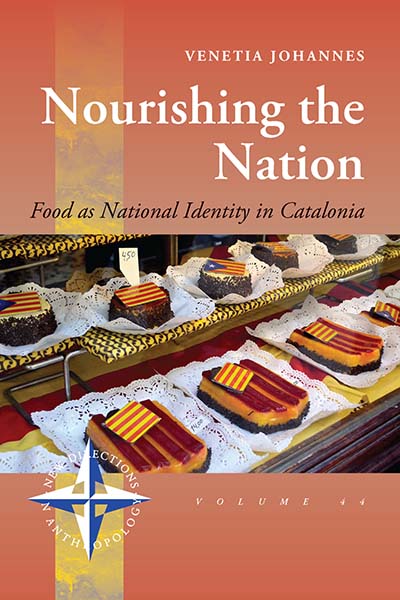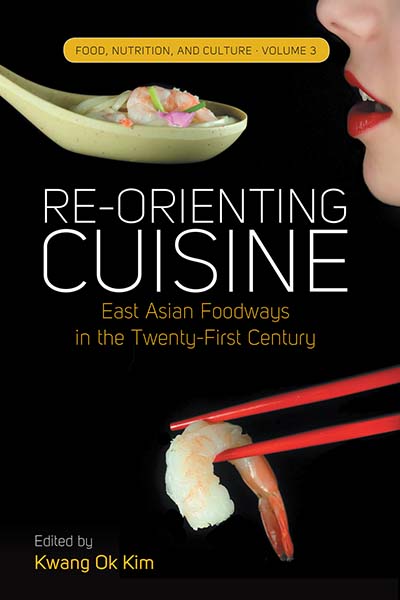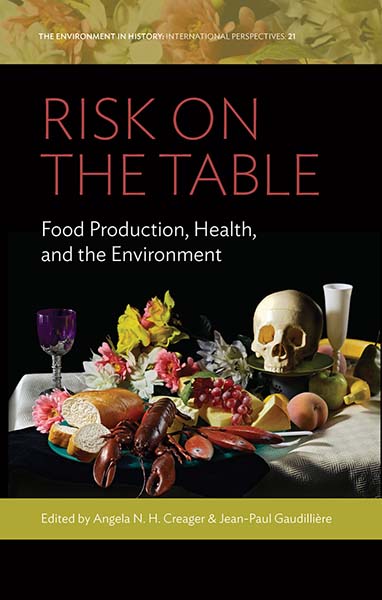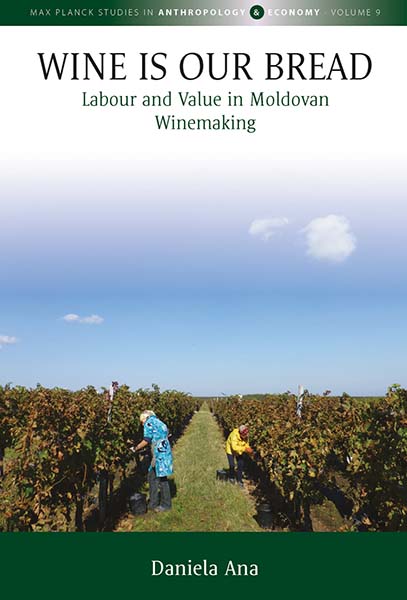Home -> Browse
-

Bigger Fish to Fry
A Theory of Cooking as Risk, with Greek Examples
Sutton, D. E.
What defines cooking as cooking, and why does cooking matter to the understanding of society, cultural change and everyday life? This book explores these questions by proposing a new theory of the meaning of cooking as a willingness to put oneself and one’s meals at risk on a daily basis. Richly illustrated with examples from the author’s anthropology fieldwork in Greece, Bigger Fish to Fry proposes a new approach to the meaning of cooking and how the study of cooking can reshape our understanding of social processes more generally.
Subjects: Food & Nutrition Anthropology (General) Cultural Studies (General)
Area: Southern Europe
-

Burgundy
The Global Story of Terroir
Demossier, M.
“Demossier’s engrossing analysis of Burgundy—the wine, the place, the brand—should be imbibed (pun intended!) on many levels—and slowly, for best appreciation.”—foodanthro.com
Drawing on more than twenty years of fieldwork, this book explores the professional, social, and cultural world of Burgundy wines, the role of terroir (the environmental factors that affect a crop's character), and its transnational deployment in China, Japan, South Korea, and New Zealand.
It demystifies the terroir ideology by providing a unique long-term ethnographic analysis of what lies behind the concept. While the Burgundian model of terroir has gone global by acquiring UNESCO world heritage status, its very legitimacy is now being challenged amongst the vineyards where it first took root.
From the introduction:
Superficially then, Burgundy might appear to be simply acquiring recognition for its unchanging landscape, tradition and culture. Yet, for all the power of its rich local identity, folklore and culture which is broadcast to the world, there hides underneath the comforting blanket of this seamless place, untouched by change or conflict, a far more complex reality. Burgundy’s listing as a World Heritage landscape emphasises its international reputation as a traditional and historical site of wine production and opens a new chapter in the production and marketing of its quality, differentiation and authenticity. It is also about readjusting Burgundy and the grands crus in response to a changing global market and the shifting kaleidoscope of world wine values.Subjects: Anthropology (General) Food & Nutrition Cultural Studies (General)
Area: France
-

Edible People
The Historical Consumption of Slaves and Foreigners and the Cannibalistic Trade in Human Flesh
Siefkes, C.
While human cannibalism has attracted considerable notice and controversy, certain aspects of the practice have received scant attention. These include the connection between cannibalism and xenophobia: the capture and consumption of unwanted strangers. Likewise ignored is the connection to slavery: the fact that in some societies slaves and persons captured in slave raids could be, and were, killed and eaten. This book explores these largely forgotten practices and ignored connections while making explicit the links between cannibal acts, imperialist influences and the role of capitalist trading practices. These are highly important for the history of the slave trade and for understanding the colonialist history of Africa.
Subjects: Food & Nutrition Anthropology (General) Colonial History
-

Feeding Anxieties
The Politics of Children's Food in Poland
Boni, Z.
Focusing on the underlying politics behind children’s food, this book highlights the variety of social relationships, expectations and emotions ingrained in feeding children in Poland. With rich ethnographic accounts, including research with children, the book demonstrates how families, schools, the food industry and state agencies shape and experience feeding anxieties, and how such anxiety is at the heart of a new form of sociality. The book complicates our understanding of health and modern subjectivity and unpacks what and how we feed children today.
Subjects: Food & Nutrition Anthropology (General) Sociology
Area: Central/Eastern Europe
-

Food and Families in the Making
Knowledge Reproduction and Political Economy of Cooking in Morocco
Graf, K.
Even in the context of rapid material and social change in urban Morocco, women, and especially those from low-income households, continue to invest a lot of work in preparing good food for their families. Through the lens of domestic food preparation, this book looks at knowledge reproduction, how we know cooking and its role in the making of everyday family life. It also examines a political economy of cooking that situates Marrakchi women’s lived experiences in the broader context of persisting poverty and food insecurity in Morocco.
Subjects: Food & Nutrition Anthropology (General) Cultural Studies (General)
Area: Africa
-

Food and Sustainability in the Twenty-First Century
Cross-Disciplinary Perspectives
Collinson, P., Young, I., Antal, L., & Macbeth, H. (eds)
Sustainability is one of the great problems facing food production today. Using cross-disciplinary perspectives from international scholars working in social, cultural and biological anthropology, ecology and environmental biology, this volume brings many new perspectives to the problems we face. Its cross-disciplinary framework of chapters with local, regional and continental perspectives provides a global outlook on sustainability issues. These case studies will appeal to those working in public sector agencies, NGOs, consultancies and other bodies focused on food security, human nutrition and environmental sustainability.
Subjects: Food & Nutrition Anthropology (General) Sustainable Development Goals
-

Food Beyond Terroir
Tasting Place and Placing Taste in Global Perspective
Colquhoun, A. & Graf, K. (eds)
From winemaking in occupied territories to fishing in polluted seas, home cooking in refugee communities, and vegan cheesemaking, this collection explores the complex ways taste and place intersect with political, ecological, social, and economic issues. Through diverse ethnographic case studies, leading food scholars examine the meaning and making of place and taste. In doing so, the book challenges terroir-inspired notions of a fixed taste of place and pushes the boundaries of what we think we know about taste-place relations.
Subjects: Food & Nutrition Political and Economic Anthropology Anthropology (General)
-

Food Connections
Production, Exchange and Consumption in West African Migration
Abranches, M.
Food Connections follows the movement of food from its production sites in West Africa to its final spaces of consumption in Europe. It is an ethnographic study of economic and social life amongst a close-knit community of food producers, traders and consumers and a wide range of small intermediaries that operate in Guinea-Bissau and Portugal. By investigating the way meanings of food and land are embedded in everyday experiences and relationships in the various phases of the movement, on both sides of the migration, it reveals the connections that transnational processes of food production, exchange and consumption generate between two lifeworlds.
Subjects: Food & Nutrition Anthropology (General) Refugee and Migration Studies
Area: Africa
-

Food Culture
Anthropology, Linguistics and Food Studies
Chrzan, J. & Brett, J. (eds)
This volume offers a comprehensive guide to methods used in the sociocultural, linguistic and historical research of food use. This volume is unique in offering food-related research methods from multiple academic disciplines, and includes methods that bridge disciplines to provide a thorough review of best practices. In each chapter, a case study from the author's own work is to illustrate why the methods were adopted in that particular case along with abundant additional resources to further develop and explore the methods.
Subjects: Anthropology (General) Food & Nutrition
-

Food Health
Nutrition, Technology, and Public Health
Chrzan, J. & Brett, J. (eds)
Nutritional Anthropology and public health research and programming have employed similar methodologies for decades; many anthropologists are public health practitioners while many public health practitioners have been trained as medical or biological anthropologists. Recognizing such professional connections, this volume provides in-depth analysis and comprehensive review of methods necessary to design, plan, implement and analyze public health programming using anthropological best practices. To illustrates the rationale for use of particular methods, each chapter elaborates a case study from the author's own work, showing why particular methods were adopted in each case.
Subjects: Anthropology (General) Food & Nutrition
-

Food in Zones of Conflict
Cross-Disciplinary Perspectives
Collinson, P. and Macbeth, H. (eds)
The availability of food is an especially significant issue in zones of conflict because conflict nearly always impinges on the production and the distribution of food, and causes increased competition for food, land and resources Controlling the production of and access to food can also be used as a weapon by protagonists in conflict. The logistics of supply of food to military personnel operating in conflict zones is another important issue. These themes unite this collection, the chapters of which span different geographic areas. This volume will appeal to scholars in a number of different disciplines, including anthropology, nutrition, political science, development studies and international relations, as well as practitioners working in the private and public sectors, who are currently concerned with food-related issues in the field.
Subjects: Peace and Conflict Studies Food & Nutrition Anthropology (General)
-

Food Research
Nutritional Anthropology and Archaeological Methods
Chrzan, J. & Brett, J. (eds)
Biocultural and archaeological research on food, past and present, often relies on very specific, precise, methods for data collection and analysis. These are presented here in a broad-based review. Individual chapters provide opportunities to think through the adoption of methods by reviewing the history of their use along with a discussion of research conducted using those methods. A case study from the author's own work is included in each chapter to illustrate why the methods were adopted in that particular case along with abundant additional resources to further develop and explore those methods.
Subjects: Anthropology (General) Food & Nutrition Archaeology
-

Food, Culture and Society in India
Social, Political, Economic and Cultural Perspectives
Patgiri, R. & Lalli, G. (Eds.)
Exploring the entangled relationships between food, culture and society in India, this edited collection brings together empirically grounded research across diverse regions and contexts. Organised into four sections – Food, Culture and Identity; Food, Memory and Migration; Food, Livelihood and Nutrition; and Food, Consumption and Media – it highlights the complex role food plays in shaping identity, mobility, labour and representation. Drawing from a range of disciplinary perspectives, the volume contributes to broader conversations in sociology, social anthropology, international development, geography, cultural studies and food studies, offering a textured account of contemporary foodways and their significance in everyday Indian life.
Subjects: Food & Nutrition Sociology Anthropology (General)
Area: Asia
-

From Clans to Co-ops
Confiscated Mafia Land in Sicily
Rakopoulos, T.
From Clans to Co-ops explores the social, political, and economic relations that enable the constitution of cooperatives operating on land confiscated from mafiosi in Sicily, a project that the state hails as arguably the greatest symbolic victory over the mafia in Italian history. Rakopoulos’s ethnographic focus is on access to resources, divisions of labor, ideologies of community and food, and the material changes that cooperatives bring to people’s lives in terms of kinship, work and land management. The book contributes to broader debates about cooperativism, how labor might be salvaged from market fundamentalism, and to emergent discourses about the ‘human’ economy.
Subjects: Anthropology (General) Political and Economic Anthropology Food & Nutrition
Area: Southern Europe
-

From Virtue to Vice
Negotiating Anorexia
O' Connor, R. A. & Esterik, P. van
The recovered possess the key to overcoming anorexia. Although individual sufferers do not know how the affliction takes hold, piecing their stories together reveals two accidental afflictions. One is that activity disorders—dieting, exercising, healthy eating—start as virtuous practices, but become addictive obsessions. The other affliction is a developmental disorder, which also starts with the virtuous—those eager for challenge and change. But these overachievers who seek self-improvement get a distorted life instead. Knowing anorexia from inside, the recovered offer two watchwords on helping those who suffer. One is "negotiate," to encourage compromise, which can aid recovery where coercion fails. The other is "balance," for the ill to pursue mind-with-body activities to defuse mind-over-body battles.
Subjects: Medical Anthropology Food & Nutrition Anthropology (General)
Area: North America
-

The Heritage Arena
Reinventing Cheese in the Italian Alps
Grasseni, C.
In Europe a number of production and communication strategies have long tried to establish local products as resources for local development. At the foot of the Alps, this scenario appears in all its contradictions, especially in relation to cheese production. The Heritage Arena focuses on the saga of Strachitunt, a cheese that has been designated an EU Protected Designation of Origin after years of negotiation and competition involving cheese-makers, merchants, and Slow Food activists. The book explores how the reinvention of cheese as a form of heritage is an ongoing and dynamic process rife with conflict and drama.
Subjects: Anthropology (General) Food & Nutrition
Area: Southern Europe
-

Matsutake Worlds
Faier, L. & Hathaway, M. J. (eds)
The matsutake mushroom continues to be a highly sought delicacy, especially in Chinese, Japanese, and Korean cuisine. Matsutake Worlds explores this mushroom through the lens of multi-species encounters centered around the matsutake’s notorious elusiveness. The mushroom’s success, the contributors of this volume argue, cannot be accounted for by any one cultural, social, political, or economic process. Rather, the matsutake mushroom has flourished as the result of a number of different processes and dynamics, culminating in the culinary institution we know today.
Subjects: Sociology Food & Nutrition Anthropology (General)
-

Nourishing Life
Foodways and Humanity in an African Town
Huhn, A.
In this accessible ethnography of a small town in northern Mozambique, everyday cultural knowledge and behaviors about food, cooking, and eating reveal the deeply human pursuit of a nourishing life. This emerges less through the consumption of specific nutrients than it does in the affective experience of alimentation in contexts that support vitality, compassion, and generative relations. Embedded within central themes in the study of Africa south of the Sahara, the volume combines insights from philosophy and food studies to find textured layers of meaning in a seemingly simple cuisine.
Subjects: Food & Nutrition Anthropology (General) Cultural Studies (General)
Area: Africa
-

Nourishing the Nation
Food as National Identity in Catalonia
Johannes, V.
In the early twenty-first century, nationalism has seen a surprising resurgence across the Western world. In the Catalan Autonomous Community in northeastern Spain, this resurgence has been most apparent in widespread support for Catalonia’s pro-independence movement, and the popular assertion of Catalan symbols, culture and identity in everyday life. Nourishing the Nation provides an ethnographic account of the everyday experience of national identity in Catalonia, using an essential, everyday object of consumption: food. As a crucial element of Catalan cultural life, a focus on food provides unique insight into the lived realities of Catalan nationalism, and how Catalans experience and express their national identity today.
Subjects: Food & Nutrition Anthropology (General)
Area: Southern Europe
-

Pure Food
Theoretical and Cross-Cultural Perspectives
Collinson, P. & Macbeth, H. (eds)
In presenting a variety of theoretical and cross-cultural perspectives on pure food, this volume demonstrates similarities and variations in cultural beliefs, behaviours and practices in different societies. These in turn highlight that pure food is a common issue for humanity, whatever the society, whatever the era. As a subject with much contemporary and cross-disciplinary relevance, Pure Food will appeal to students and academics involved in any food-related discipline, to professional practitioners promoting healthier foods and nutrition and to general readers with an interest in food.
Subjects: Food & Nutrition Anthropology (General)
-

Re-orienting Cuisine
East Asian Foodways in the Twenty-First Century
Kim, K. O. (ed)
Foods are changed not only by those who produce and supply them, but also by those who consume them. Analyzing food without considering changes over time and across space is less meaningful than analyzing it in a global context where tastes, lifestyles, and imaginations cross boundaries and blend with each other, challenging the idea of authenticity. A dish that originated in Beijing and is recreated in New York is not necessarily the same, because although authenticity is often claimed, the form, ingredients, or taste may have changed. The contributors of this volume have expanded the discussion of food to include its social and cultural meanings and functions, thereby using it as a way to explain a culture and its changes.
Subjects: Anthropology (General) Food & Nutrition
Area: Asia-Pacific
-

Risk on the Table
Food Production, Health, and the Environment
Creager, A. N. H. & Gaudilière, J.-P. (eds)
Over the last century, the industrialization of agriculture and processing technologies have made food abundant and relatively inexpensive for much of the world’s population. Simultaneously, pesticides, nitrates, and other technological innovations intended to improve the food supply’s productivity and safety have generated new, often poorly understood risks for consumers and the environment. From the proliferation of synthetic additives to the threat posed by antibiotic-resistant bacteria, the chapters in Risk on the Table zero in on key historical cases in North America and Europe that illuminate the history of food safety, highlighting the powerful tensions that exists among scientific understandings of risk, policymakers’ decisions, and cultural notions of “pure” food.
Subjects: Environmental Studies (General) History: 20th Century to Present Food & Nutrition Sustainable Development Goals
-

Wine Is Our Bread
Labour and Value in Moldovan Winemaking
Ana, D.
Based on ethnographic work in a Moldovan winemaking village, Wine Is Our Bread shows how workers in a prestigious winery have experienced the country’s recent entry into the globalized wine market and how their productive activities at home and in the winery contribute to the value of commercial terroir wines. Drawing on theories of globalization, economic anthropology and political economy, the book contributes to understanding how crises and inequalities in capitalism lead to the ‘creative destruction’ of local products, their accelerated standardization and the increased exploitation of labour.
Subjects: Food & Nutrition Political and Economic Anthropology
Area: Central/Eastern Europe


